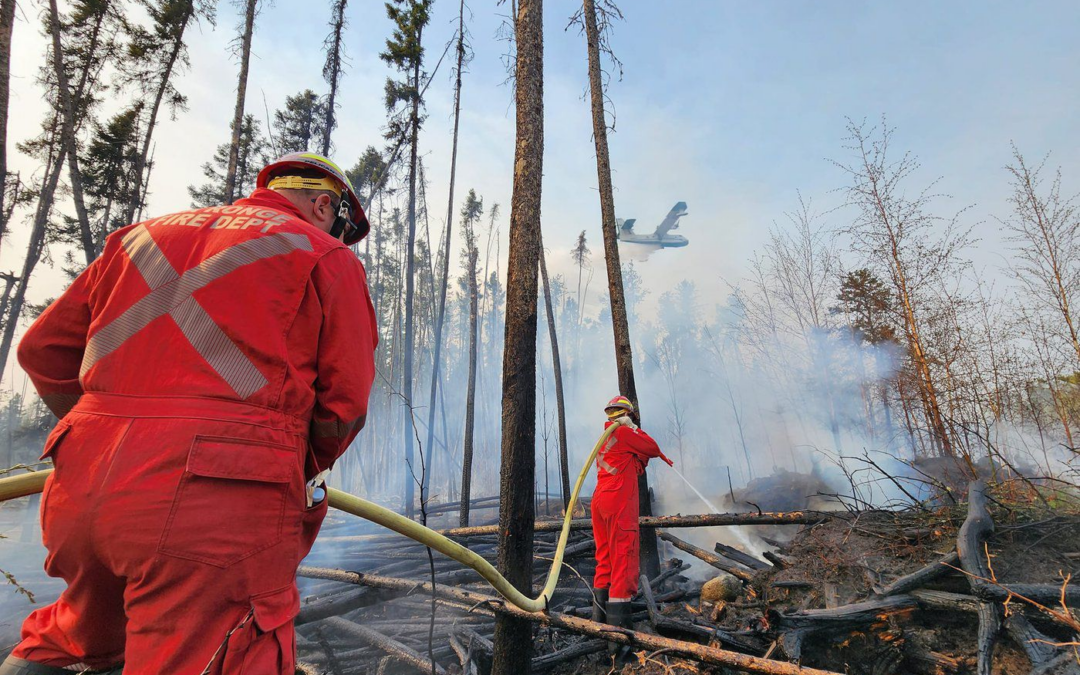Firefighters from the La Ronge Regional Fire Department battle blazes in northern Saskatchewan in May 2023.
Photo submitted by La Ronge Regional Fire Department
By: Kimiya Shokoohi, Local Journalism Initiative Reporter, The StarPhoenix
Resources and training are required to ensure the safety of First Nations communities in Lac La Ronge during wildfire season, according to emergency crews with the Lac La Ronge Indian Band.
The latest wildfire update from the Saskatchewan public safety agency indicated there are 28 active fires in Saskatchewan, with a core of cases in the La Ronge area.
Emergency management representatives for the band said the fires have not caused major disruptions or displacement, but they are seeking more training in FireSmart, a national program that aims to raise neighbourhood resilience against wildfire. Its programs are managed by the Saskatchewan Public Safety Agency.
“We just need more training, more people providing this training, as the province is very stressed out in training the firefighters,” said Maurice Ratt, emergency management coordinator and fire chief of the Sucker River with Lac La Ronge Indian Band.
At least two of the fires are not contained and several more are under ongoing assessment. The biggest threat to Indigenous communities in the region is smoke. This year alone, 1.1 million hectares of land have burned, according to the Saskatchewan Public Safety Agency.
The Lac La Ronge Indian Band is a Woodland Cree First Nation comprised of 7,835 members, with a further 4,680 people living across the communities at Grandmother’s Bay, Sucker River, Little Red River, La Ronge, Stanley Mission, and Kitsaki. The band controls 43,302 hectares of land.
Across Canada, wildfires continue to be of ongoing concern; 10 million hectares of land have been affected, according to the Canadian Interagency Forest Fire Centre.
